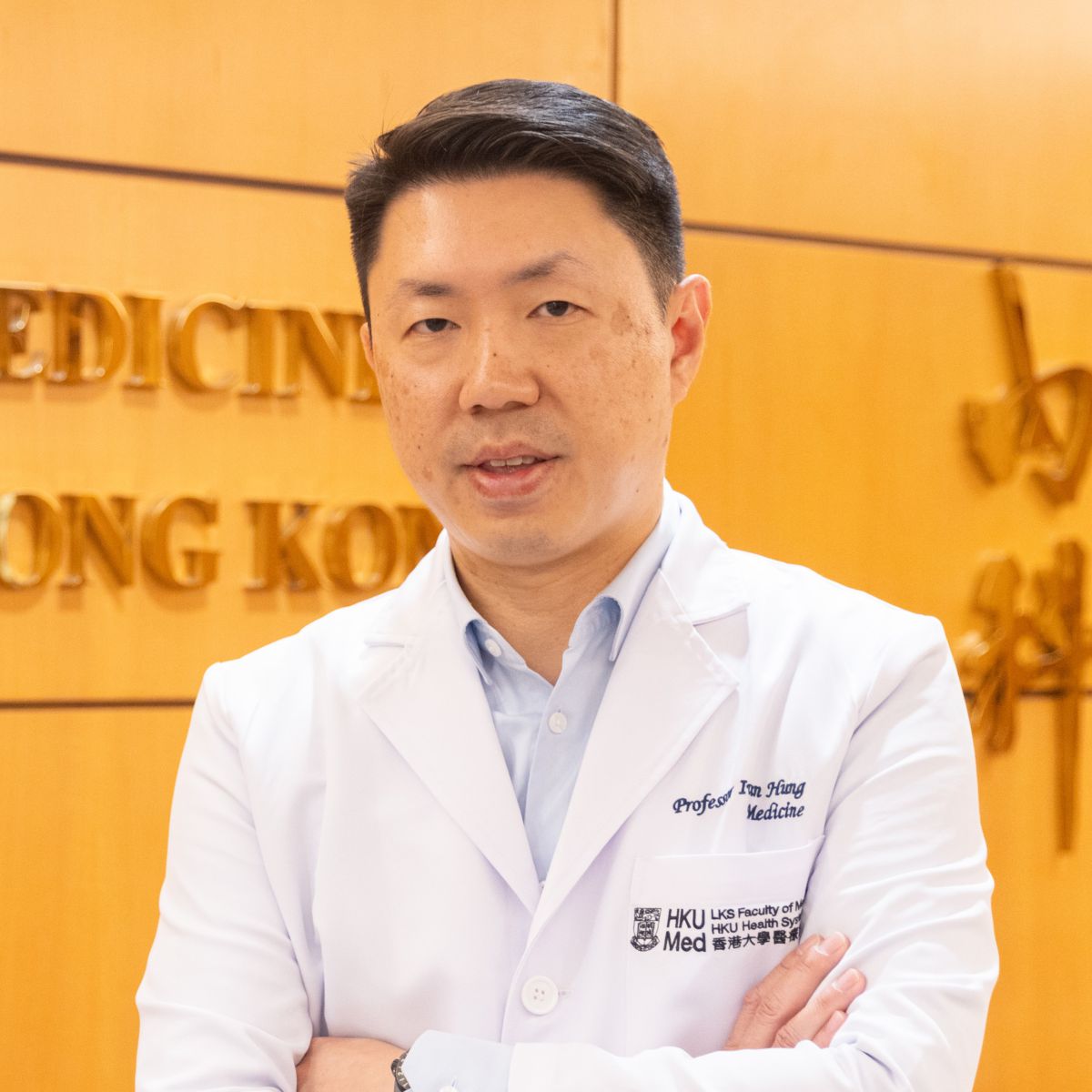
Professor Ivan Hung
Infectious Diseases Expert
Fighting with Viruses from SARS to COVID to Stop Disease Outbursts
Professor Ivan Hung, Chair Professor at HKU Department of Medicine and Chief of Infectious Diseases, has been dedicated to research in infectious diseases for many years. During the disease outbreaks in Hong Kong in recent years, he has wholeheartedly engaged in clinical research and disease control, making outstanding contributions to Hong Kong in fighting against the epidemics. Facing with those increasingly “smart” novel viruses, Professor Hung always stays at the forefront and never retreats.
Research Passion Inspired by SARS outbreak
When he was still a youth, Professor Hung decided to pursue a career in medicine as inspired by his mother who worked as a nurse. Shortly after graduation, he joined the then rising field of infectious diseases and was mentored by Professor Yuen Kwok-Yung. “Professor Yuen not only talked about academic knowledge during his lectures but also shared his wisdom about life. He inspired me and has always been my role model.” One of the biggest challenges Professor Hung faced early in his career was the fight against SARS. “At that time, the source of the disease was unknown, and we hadn’t even identified the pathogen. There was a lot of fear in the society. One of the most memorable moments was when Professor Yuen led the team to brainstorm and listed out the various possibilities on the blackboard, one of which was coronavirus. That was later confirmed by the team,” Professor Hung recalled.
During the outbreak in a housing estate, Professor Hung and his team collected samples from 75 patients at a hospital for testing within three days. They worked around the clock to analyze patient data and laboratory reports. Faced with an unknown epidemic, the research team finally identified the three stages of the disease, with the most significant impact being the second stage – the inflammatory phase. The virus would interfere with the balance in patients’ immune system, leading to severe inflammation. The research team then developed the optimal emergency treatment plan: to suppress the viral load in the shortest possible time, control inflammation levels, and thereby reduce complications and mortality.
Achieving Research Outcomes by Partnering with Patients
Professor Hung deeply understands the importance of clinical research and has been tirelessly conducting clinical research all the time. He not only translates laboratory discoveries into clinical practices but also brings clinical observations back to the laboratory for research. One notable recent example is the COVID-19 pandemic. “Through laboratory research, we found that interferon is the most effective in suppressing SARS-CoV-2. So we immediately launched clinical trials, and within three months, more than 200 patients eagerly participated, contributing to the fight against the epidemic.” As the pioneer who proposed the “triple combination therapy” using protease inhibitors, interferon, and ribavirin to treat COVID-19 infections, Professor Hung’s treatment hypothesis was ultimately proven via the clinical trial and the results have been published in a top scientific journal, The Lancet.
Synergizing Research, Teaching and Clinical Services to Combat Infectious Diseases
Professor Hung believes that clinical services, teaching, and research are interrelated, and therefore he persists in pursuing them despite his busy schedule. “Encountering difficulties in clinical treatment induces healthcare professionals to seek solutions through research. Teaching can also inspire new research perspectives and stimulate thinking through students’ questions.” He also expresses gratitude for the support from HKU-CTC over the years, allowing him to balance his work in clinical services, teaching, and research. “Although their team is limited in manpower, they are meticulous and dedicated in everything they do. For example, when our research team initiated the clinical trial on our nasal vaccine for COVID-19 during the early stage of the pandemic, we immediately sought collaboration with the centre because of their expertise and extensive experience. They seamlessly worked with us to efficiently and safely complete the research project.”
Facing the unsolved challenges in the field of infectious diseases, Professor Hung hopes that the medical community can continue to think critically and research for answers. In the long run, he hopes that broad-spectrum vaccines can be developed to address rapidly mutating coronaviruses, influenza viruses, and other pathogens. With a guiding light, Professor Hung not only explores solutions but also acts as a beacon for future researchers.
